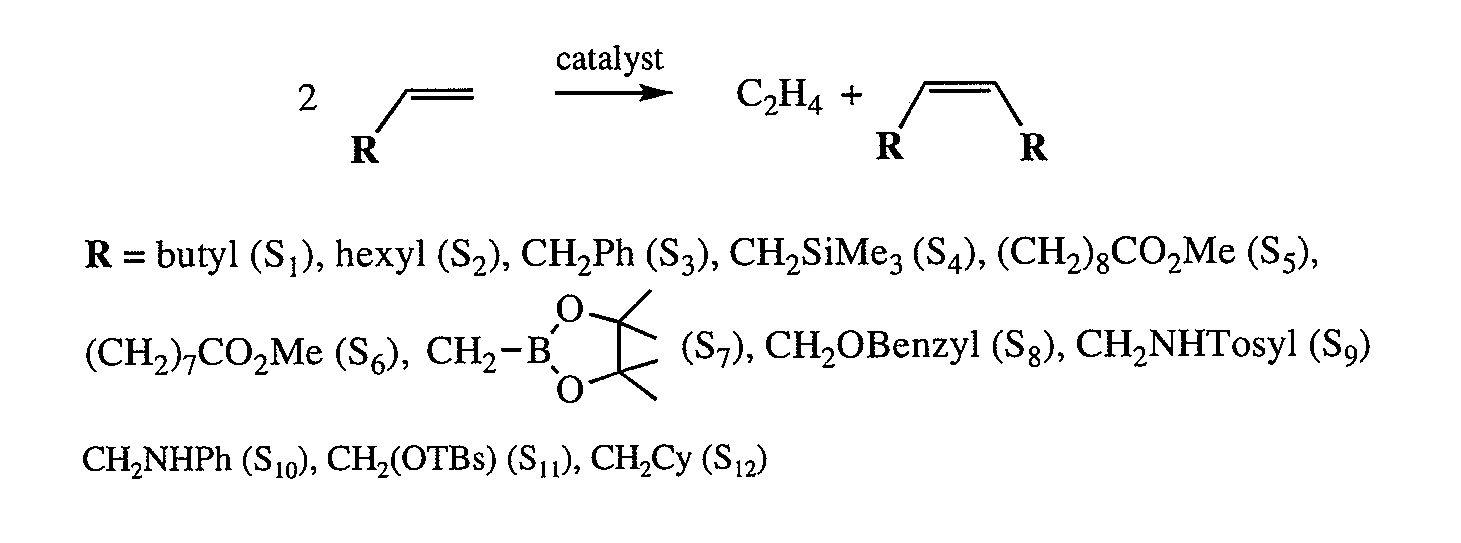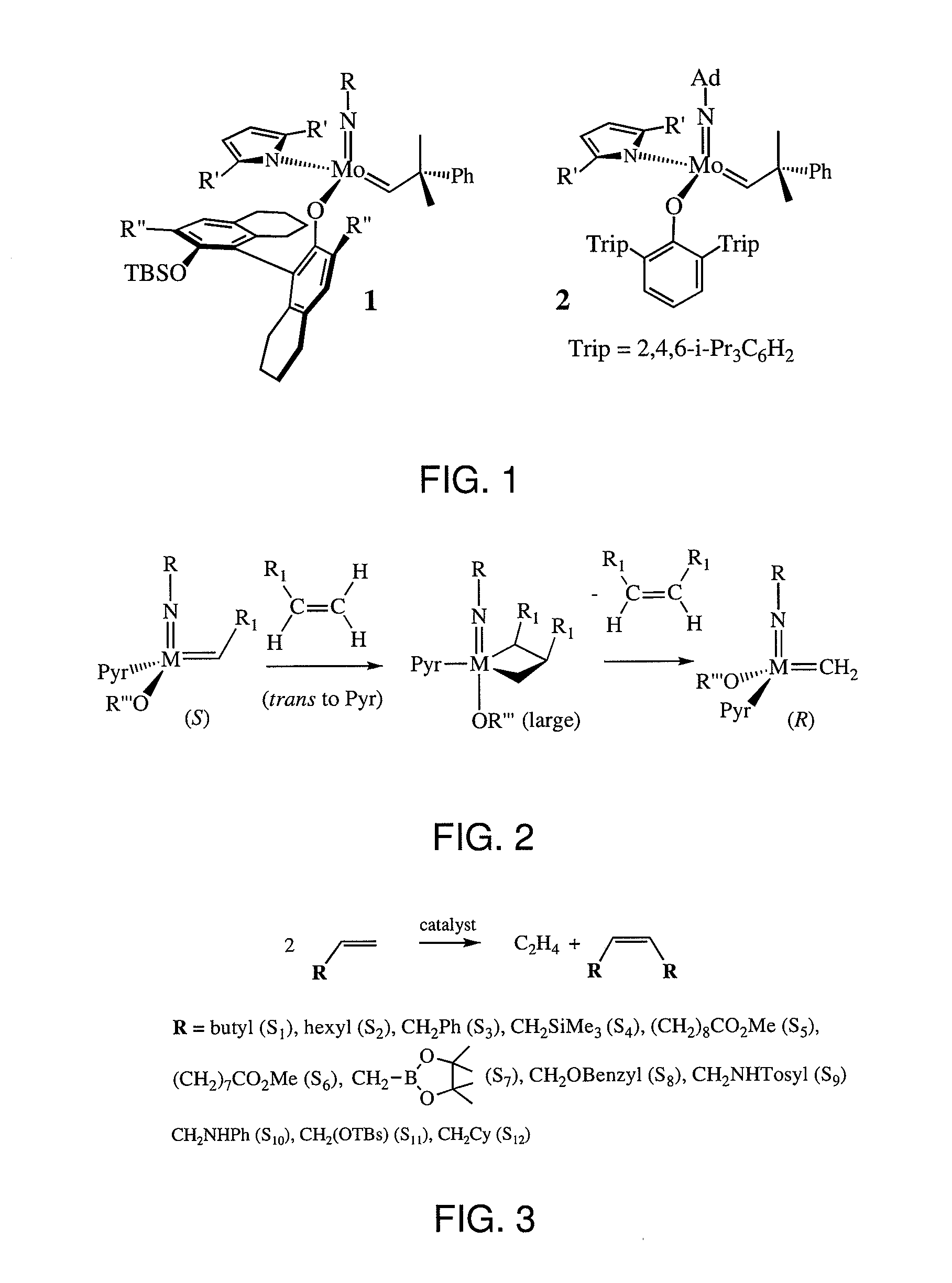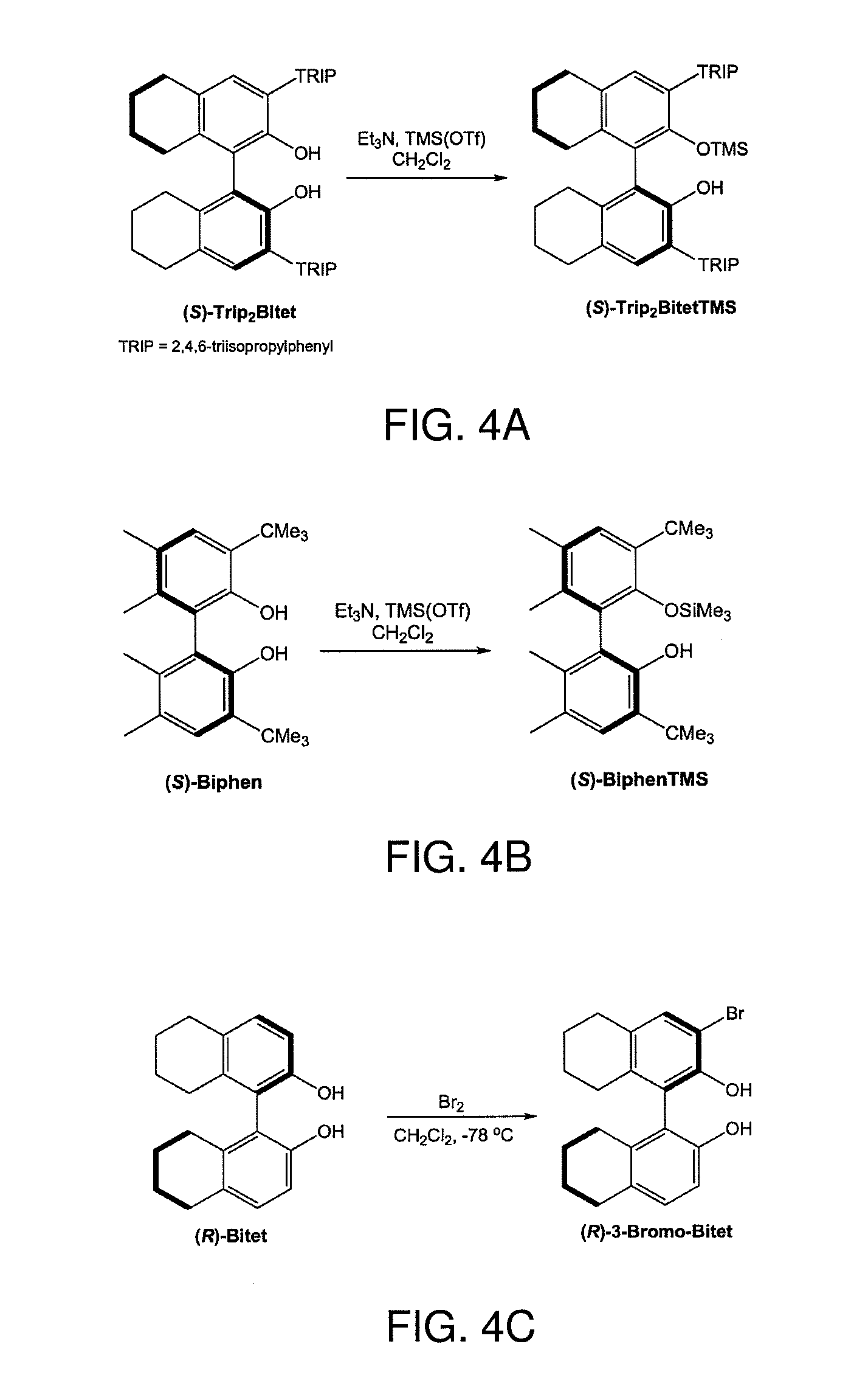Highly z-selective olefins metathesis
a technology of z-selective coupling and internal olefins, which is applied in the direction of group 3/13 element organic compounds, group 5/15 element organic compounds, hydrocarbon preparation catalysts, etc., can solve the problems of difficult separation of z- and e- isomers, and the z-selective coupling of internal olefins is much less useful than the z-selective coupling
- Summary
- Abstract
- Description
- Claims
- Application Information
AI Technical Summary
Benefits of technology
Problems solved by technology
Method used
Image
Examples
example 1
[0085]The following example describes highly Z-selective olefin homo-metathesis, according to non-limiting embodiments. Highly reactive MonoAryloxide-Pyrrolide (MAP) olefin metathesis catalysts of Mo (e.g., see FIG. 1) have been prepared from bispyrrolide precursors in situ and employed for select metathesis reactions. See, for example, Schrock, R. R., Chem. Rev., 2009, 109, 3211; Hock, A., et al., J. Am. Chem. Soc., 2006, 128, 16373; and Singh, R., et al., J. Am. Chem. Soc., 2007, 129, 12654. A MAP catalyst generally comprises an imido ligand, and alkylidene ligand, an oxygen-containing ligand, and a nitrogen-containing ligand associated with a metal center.
[0086]A possible mechanism of Z-selective homo-coupling of R1CH═CH2 (e.g., a mono-substituted terminal olefin) via a (syn, rac) MAP catalyst is shown in FIG. 2. Generally, only syn isomers are observed by NMR or X-ray studies of MAP catalysts. A terminal olefin may enter the coordination sphere trans to the pyrrolide (Pyr) to yi...
example 2
[0096]The following example outlines synthetic procedures and method employed in Example 1, as well as additional examples of reaction substrates and catalysts.
[0097]Abbreviations. Ar: 2,6-diisopropylphenyl; ArCl:2,6-dichlorophenyl; Ar′: 2,6-dimethyphenyl; Ad: 1-admantyl; Mes: mesityl; Me2Pyr: 2,5-dimethylpyrrolide; Pyr: pyrrolide; TBS: dimethyl-t-butylsilyl; Ts: tosyl; OTf: triflate; Trip: 2,4,6-triisopropylphenyl; HIPTO: hexaisopropylterphenolate; OSi(TMS)3: 1,1,1,3,3,3-hexamethyl-2-(trimethylsilyl)trisilan-2-olate; Biphen: 3,3′-di-tert-butyl-5,5′,6,6′-tetramethylbiphenyl-2,2′-diol; BiphenTMS: 3,3′-di-tert-butyl-5,5′,6,6′-tetramethyl-2′-(trimethylsilyloxy)biphenyl-2-olate; Bitet: 5,5′,6,6′,7,7′,8,8′-octahydro-1,1′-binaphthyl-2,2′-diol; Trip2Bitet: 3,3′-bis(2,4,6-triisopropylphenyl)-5,5′,6,6′,7,7′, 8,8′-octahydro-1,1′-binaphthyl-2,2′-diol; Trip2BitetTMS: 3,3′-bis(2,4,6-triisopropylphenyl)-2′-(trimethylsilyloxy)-5,5′,6,6′,7,7′,8,8′-octahydro-1,1′-binaphthyl-2-olate; Br2Bitet: 3,3′-d...
PUM
| Property | Measurement | Unit |
|---|---|---|
| optical purity | aaaaa | aaaaa |
| optical purity | aaaaa | aaaaa |
| optical purity | aaaaa | aaaaa |
Abstract
Description
Claims
Application Information
 Login to View More
Login to View More - R&D
- Intellectual Property
- Life Sciences
- Materials
- Tech Scout
- Unparalleled Data Quality
- Higher Quality Content
- 60% Fewer Hallucinations
Browse by: Latest US Patents, China's latest patents, Technical Efficacy Thesaurus, Application Domain, Technology Topic, Popular Technical Reports.
© 2025 PatSnap. All rights reserved.Legal|Privacy policy|Modern Slavery Act Transparency Statement|Sitemap|About US| Contact US: help@patsnap.com



